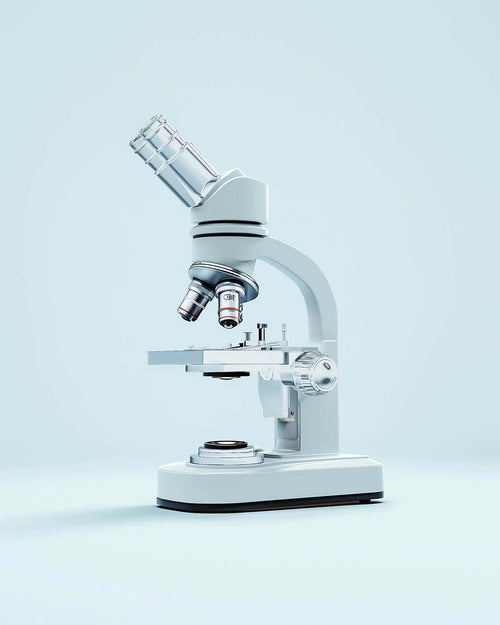Optimal therapy selection through precise analyses

Precise diagnostics for tailor-made treatment
Accurate cancer analysis and diagnosis are the key to successful cancer therapy. While conventional diagnostic procedures often only determine whether cancer is present, CancerGen Labs goes a crucial step further. These analyses help your doctor make informed decisions and select a therapy that is precisely tailored to your cancer.
explanatory video
How our precise diagnostics enable targeted and individual therapy


How we analyze
Our extensive genetic and molecular analyses provide in-depth insights into the biological properties of the tumor to tailor treatment to your specific situation. Whether through a biopsy or existing tissue samples, we analyze the sample in our specialized laboratory. We identify mutations and other molecular markers that provide important information about the behavior of the tumor and possible therapeutic approaches. In contrast to the standard approach, which only confirms the presence of cancer cells, we offer in-depth insights that enable us to tailor targeted therapies to the individual tumor.

What we find out
- Genetic mutations : By specifically examining important genes, we can find out how the tumor might respond to certain therapies.
- Tumor behavior : We analyze the biological properties of the tumor to understand how aggressively it might grow and spread in the body.
- Therapy sensitivity : We analyze the tumor's responsiveness to targeted therapies or immunotherapies in order to find the treatments that are optimally tailored to its characteristics and show the greatest effectiveness.
Summary of the differences
- The basic package offers a basic analysis of the important genes and is suitable for patients who want to gain initial insights into the characteristics of their tumor.
- The premium package extends the analysis to include additional genes and includes additional information on suitability for targeted therapies and immunotherapies.
- The platinum package provides a complete analysis of all genes that are therapeutically relevant, a PD-L1 test to assess suitability for immunotherapy if this is possible for the type of cancer, RNA sequencing to identify additional molecular changes that are not visible in DNA analysis, and in vitro tests with the most relevant drugs that are effective and commonly used in clinical practice. The tests omit drugs that are approved but are rarely or no longer used in practice because they are either outdated, less effective or too toxic compared to more modern alternatives. In collaboration with your treating doctor, we can test additional drugs upon separate request. The platinum package enables highly personalized therapy.
- The number of genes varies depending on the type of cancer for the following reasons:
- Known genetic markers : Some cancers have well-defined genetic markers (e.g. BRCA1/2 in breast cancer) that have been extensively studied and are therapeutically relevant. Other cancers have less well-established markers that are currently used therapeutically.
- Therapeutic relevance : Genes that influence the choice of treatment (e.g. targeted therapies, immunotherapies) were primarily included. Genes that are not yet sufficiently validated or therapeutically useful were initially omitted.
- Data situation : For some types of cancer, comprehensive genetic analyses are established, while for others research is still ongoing. This means that for certain types of cancer, fewer genes are known that have therapeutic significance.
Summary of the various analyses
Overview at a click +
Analyses to identify targeted therapy options
- EGFR mutation analysis
Investigates mutations in the EGFR gene that occur in various types of cancer, especially lung cancer, but also colon and breast cancer. These mutations influence the choice of targeted therapies.
Included in: Basic, Premium, Platinum
- ALK fusion analysis
Determines the presence of ALK gene fusions, which occur in various cancers, particularly lung cancer. These fusions offer opportunities for targeted therapies.
Included in: Basic, Premium, Platinum
- BRAF mutation analysis
Identifies mutations in the BRAF gene that occur in skin cancer (melanoma) and colon cancer, among others, and respond to specific treatments.
Included in: Premium, Platinum
- ROS1 fusion analysis
Rare but therapeutically relevant test for ROS1 gene fusions, which can occur in lung and other cancers.
Included in: Premium, Platinum
- MET exon 14 skipping mutation
A specific mutation in the MET gene that is important for certain types of cancer, including lung cancer, and enables targeted therapies.
Included in: Premium, Platinum
- HER2 mutation analysis
Tests for mutations in the HER2 gene, which occur in breast cancer, stomach cancer and other tumors and influence the choice of targeted therapies.
Included in: Premium, Platinum
- RET fusion analysis
Identifies RET gene fusions that occur in certain cancers and respond to specific therapies.
Included in: Premium, Platinum
- NTRK fusion analysis
Investigates NTRK gene fusions that can occur in various cancers and enable targeted treatment.
Contained in: Platinum
- FGFR1 mutation analysis
Analyzes the FGFR1 gene, which can be mutated in various cancers, to enable targeted therapies.
Contained in: Platinum
Analyses to determine therapy resistance and sensitivity
- KRAS mutation analysis
This mutation occurs in many types of cancer, including colon, lung and pancreatic cancer, and often shows resistance to certain therapies.
Included in: Basic, Premium, Platinum
- NRAS mutation analysis
Investigates the NRAS gene, which can be mutated in some tumors, such as skin and colon cancer, and influences treatment decisions.
Contained in: Platinum
- STK11 mutation analysis
Determines mutations in the STK11 gene, which often indicate resistance to certain treatments, particularly in lung and other cancers.
Contained in: Platinum
-
KEAP1 mutation analysis
Analyzes the KEAP1 gene, which is associated with resistance to therapies in various cancers.
Contained in: Platinum
Analyses to assess tumor aggressiveness
- TP53 mutation analysis
Mutations in the TP53 gene are found in many tumors and indicate more aggressive tumors that require more intensive treatments.
Contained in: Platinum
- MYC amplification analysis
Investigates the amplification of the MYC gene, which causes increased cell proliferation and signals aggressive growth in various cancers.
Contained in: Platinum
- CDKN2A mutation analysis
This mutation is found in many types of cancer and is often associated with fast-growing, aggressive tumors.
Contained in: Platinum
- SMARCA4 mutation analysis
Identifies mutations in the SMARCA4 gene, which can trigger aggressive behavior in certain tumor types.
Contained in: Platinum
Analyses of suitability for immunotherapies
- PD-L1 expression analysis
This analysis determines whether the tumor has high PD-L1 expression, which can be a positive indicator of the success of immunotherapies.
Included in: Premium, Platinum
- Microenvironment analysis
Evaluates immune activity around the tumor to determine suitability for immunotherapy.
Included in: Premium, Platinum
Gene activity analyzes (transcriptome analyses)
- RNA sequencing
This analysis shows which genes are active in the tumor and how they influence tumor behavior.
Contained in: Platinum
- Gene expression profiles
This detailed analysis of gene activity helps to evaluate the aggressive properties of the tumor and select targeted therapies.
Contained in: Platinum
Targeted therapy selection made easy
Find the right package
Your health deserves the best, personalized approach. CancerGen Labs offers customized packages to find the best therapy for your specific situation.
We also offer you additional support services to ensure comprehensive care. Be it coordination between you and the attending physician, discussion of your results, organization of sample collection (e.g. blood or tissue) in a specialized clinic, exclusive care from one of our doctors, support from a qualified interpreter and accommodation in a high-quality and well-known 5-star hotel. We are happy to support you. Feel safe and supported at every step!
Maximum and exclusive care
Important questions and topics
How long does it take to receive my test results and how will I be notified of the results?
After your sample has been taken, it usually takes about 10 to 14 days for the test results to be available. You will receive a detailed report containing the results of the cancer analysis and therapy tests. This report will either be sent to you directly or discussed with your treating doctor. We also offer a detailed consultation to explain the results and plan your next steps.
What costs are incurred and will they be covered by my health insurance?
It is possible that your health insurance company will cover the costs of cancer cell sampling. The costs for our cancer analyses and therapy tests vary depending on the extent of the examination. There are various package options and the option to select individual tests individually. Whether your health insurance company covers the costs depends on your insurance contract and the medical benefit of the tests. We recommend clarifying this in advance with your health insurance company and your doctor.
What samples are needed for the tests and how are they collected?
Our cancer analysis usually requires a tissue sample (biopsy) or blood sample. Your doctor or a specialized laboratory can take this sample. For certain tests, a simple blood sample is sufficient, while more complex analyses require a tissue sample. The exact requirements will be discussed with you in advance.
Can I have the tests done even if I am already receiving treatment?
Yes, our tests can be carried out both before starting treatment and during ongoing therapy. Especially in cases where therapy does not work as expected, a new analysis of the tumor cells can provide valuable information for adjusting the treatment.
Is personalized cancer therapy (precision medicine) suitable for every type of cancer?
Personalized cancer therapies can be used for many types of cancer, including breast cancer, lung cancer, colon cancer and more. However, the suitability of such therapies depends on the specific genetic structure of the tumor. The tests help determine whether precision medicine treatment makes sense in your case.
How reliable are the test results and how accurate are the analyses?
Our tests are based on highly accurate, scientifically validated methods performed in specialized laboratories. The results are therefore extremely reliable and are evaluated by experienced professionals. Nevertheless, it is important to evaluate the test results in the context of your entire medical history and with the involvement of your doctor.
Can I have the tests done outside of Germany?
Yes, we offer our services internationally. The exact procedures for sample collection and shipping may vary by country, but our team will be happy to help you coordinate. Please contact us to learn more about availability and the process in your country.
What samples are needed for the tests and how are they collected?
Our cancer analysis usually requires a tissue sample (biopsy) or blood sample. Your doctor or a specialized laboratory can take this sample. For certain tests, a simple blood sample is sufficient, while more complex analyses require a tissue sample. The exact requirements will be discussed with you in advance.
























